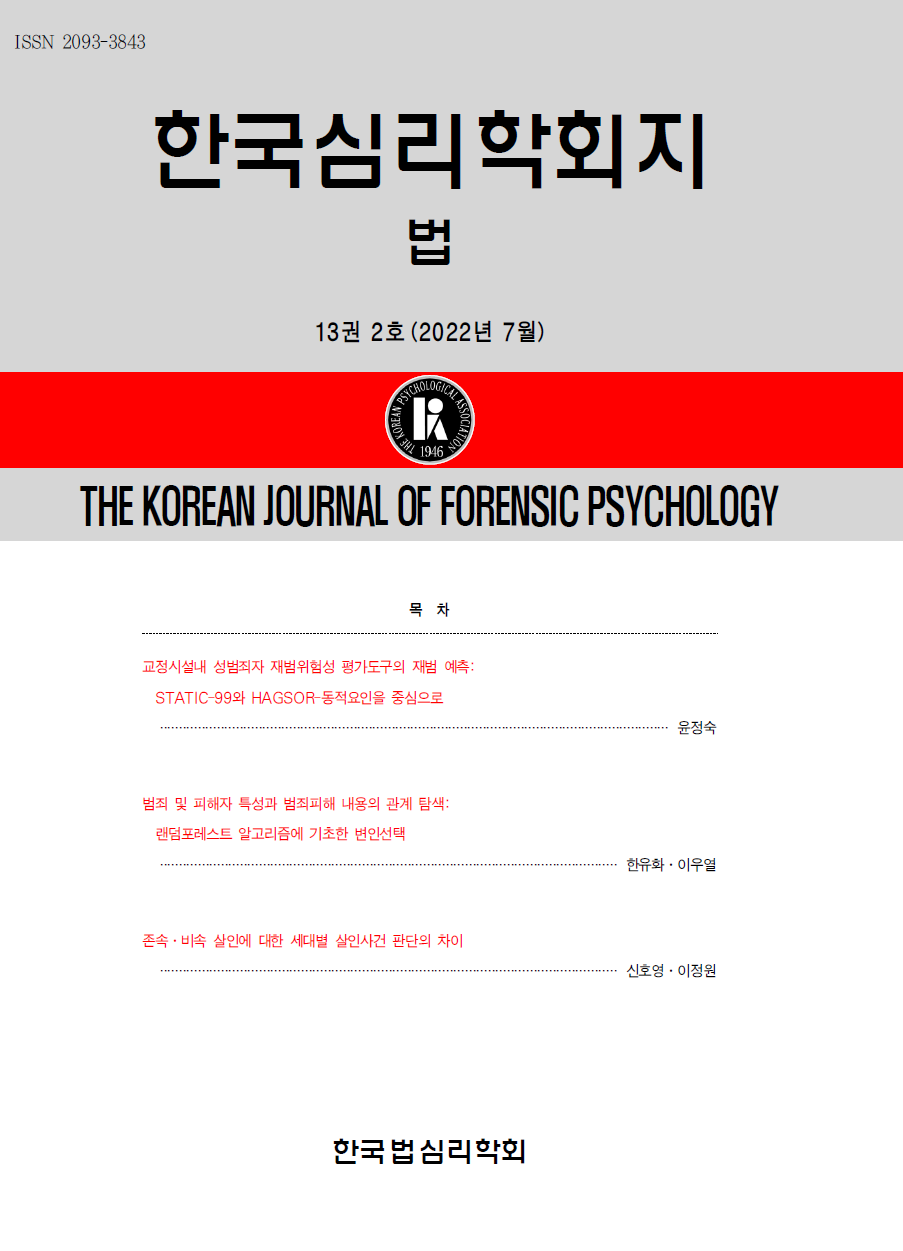 ISSN : 2093-3843
ISSN : 2093-3843
This study confirmed the utility of the Personality Assessment Inventory (PAI) in assessing crime victims’ psychopathological symptoms. The t-scores of 22 PAI scales (4 validity scales, 11 clinical scales, 5 treatment scales, and 2 interpersonal scales) of 258 victims and 1,442 non-victims were compared. The victim group was found to have significantly higher scores for all scales except dominance (DOM) (no difference) and treatment rejection (RXR) (significantly lower), with an especially larger effect size in anxiety (ANX), anxiety-related disorders (ARD), depression (DEP), and suicidal ideation (SUI). Regarding the validity scales, the likelihood of the t-score being at or above the manual-based cut-off was 10.25 times inconsistency (ICN), 1.17 times infrequency (INF), and +5.15 times negative impression (NIM) higher in the victim group than in the non-victim group. These results may compromise the validity of profiles of victims’ clinical scales. Nevertheless, the PAI was found to be an adequate instrument for measuring several of the PTSD-related features that a victim of crime may experience. The need for a new standard for interpreting validity scales that considers the unique characteristics of crime victims was then discussed.